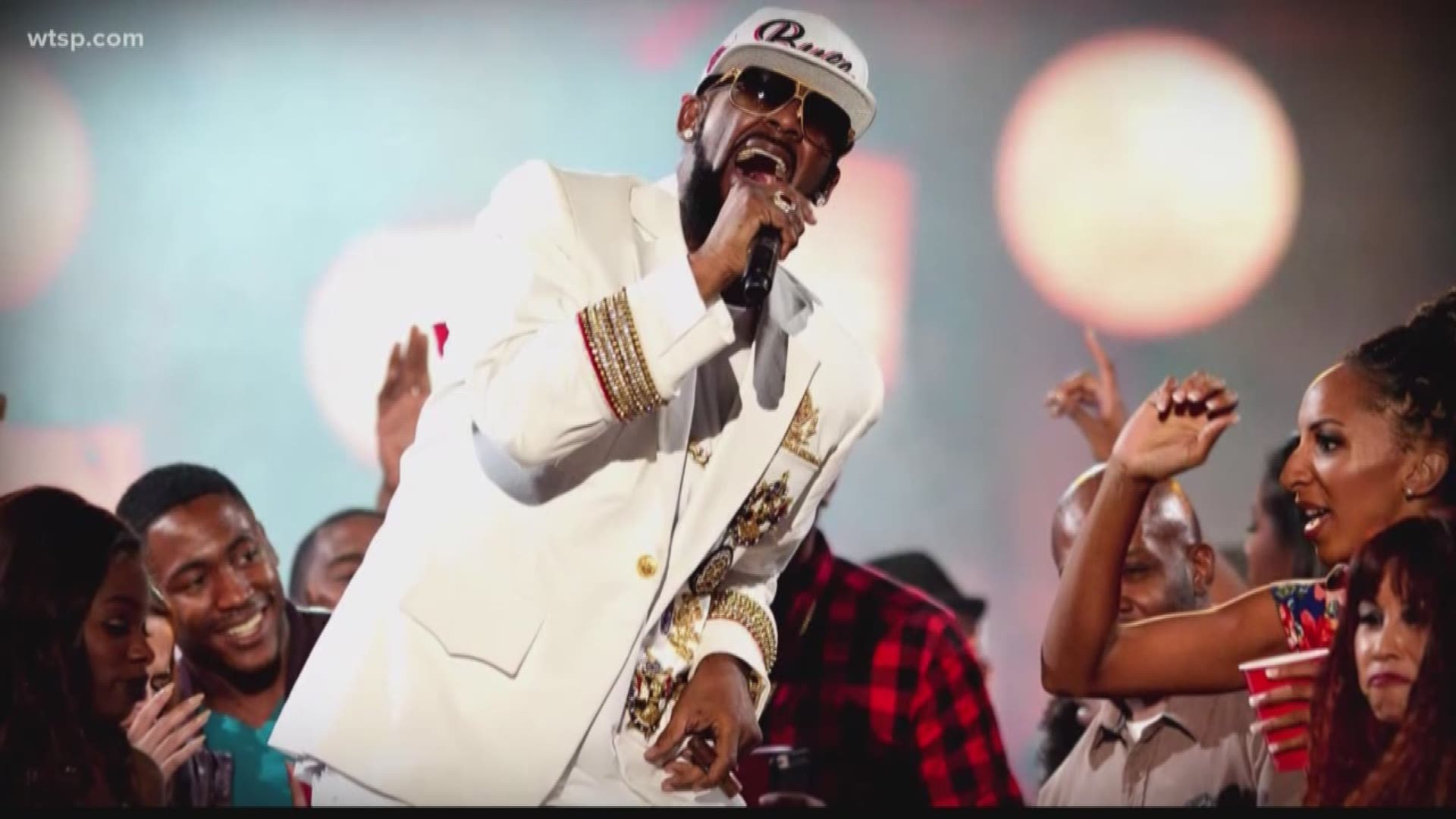TAMPA, Fla. — The #MeToo movement has commanded the nation's attention and taken down some of the most prominent men in show business, and Tuesday night, founder Tarana Burke, will speak at USF as part of the University Lecture Series.
The university recently faced a lot of criticism for allowing singer R. Kelly to perform in November amid allegations of sexual assault and harassment.
10News reporter Emerald Morrow spoke with professor Aisha Durham, who launched a petition to keep him off campus, and why she says the conversation is not over.
Note: The conversation has been edited for clarity
Reporter: Why has it taken the public so long to respond?
Durham: In some ways, we did know what was happening with R. Kelly ... I think the main thing is that you have a collective of voices ... but I think it's also because of the kind of historical moment that we're in in terms of Time's Up and #MeToo...and I think for the first time, from the docuseries, we actually *hear* women, and black women. Black women and girls, in particular.
Reporter: Speaking of black women, black girls, black voices, can you talk about the role race plays in this, if any?
Durham: We, in a broader society, we actually don't have as much empathy or sympathize with victims who are black and female. One of the ways in which our community, and I’m talking about the black community in particular, galvanizes in terms of movement and action, is often times when the victim is a black male … but when the victim is a black woman or a black girl, we still do the activism, but we don’t have the same amount of attention. So I do think that the docuseries ("Surviving R. Kelly") … brought that public attention, but also made us think about, "Why is it that we have not heard these stories about black girls and black women? And why is it that only after we have this very public discussion about the Harvey Weinsteins and the like, that we are now thinking of victims of sexual and domestic violence and trafficking and even pedophilia, are also black girls and black women?”
Reporter: One of the conversations that often comes up is that, "I love his music so much, I grew up on his music." Why do people have such a hard time separating that love for his music from the allegations against him?
Durham: We can't afford to just celebrate something just because of its entertainment value without thinking about the politics that goes into making it, the politics that goes into the actual artist.
Reporter: As a scholar who studies black women and their representation in media, we both know there's this stereotype of the Jezebel that goes back for generations and generations.
Durham: He's a master manipulator. And so, he actually used the idea of these stereotypes in terms of the sexually adventurous, or "freaky" black girl or woman to his advantage to say, "No, they want to be with me."
Reporter: Obviously he performed here not long ago, and you were part of an effort to not have that happen.
Durham: I saw it in the newspaper, and I said. "He's running under the radar. How is this happening, especially amidst this grassroots movement in terms of #MuteRKelly?" I felt gutted as an educator. Because one of the things that I talk about in terms of popular culture or advocacy-oriented popular culture is that we are learning this information not only to change the way we see the world but actually use the information that we are learning to create a better world for all people."
Emerald Morrow is a reporter with 10News WTSP. Like her on Facebook and follow her on Twitter. You can also email her at emorrow@wtsp.com.

